English - Speaking and Listening
Curriculum Overview for Speaking and Listening
Intent
At Connaught, we intend for all of our children, including those who are disadvantaged or have SEND, to be able to express their opinions, articulate feelings and listen to and respond appropriately in a range of situations using appropriate and ambitious vocabulary. As well as this, we encourage group work whereby children can participate with different children to present ideas with confidence, valuing the views of others.
Implementation
Children will develop the skills to speak audibly and confidently before an audience (for example when completing their class talk, presenting their findings to the class or performing in a show).
Speaking and listening skills are honed through a variety of activities and opportunities such as: class talks, PSHE discussions, responding to questions, drama activities, pupil parliament discussions, topic celebrations, school productions, ERIC lessons and debates. All teachers are trained to ensure they model high quality speaking and listening and explicitly incorporating modelled examples for the children.
Impact
Children have the confidence to use their speaking and listening skills in a range of different situations and to different audiences. As well as this, their knowledge of language has a positive impact on their written composition.
Spoken Language
Speaking and listening skills are vital in all learning and social situations. We encourage our pupils to speak clearly and articulate their views and opinions by encountering a range of situations, activities and audiences, which are designed to develop confidence and competence.
Speaking and listening is something that all staff promote in the classroom ensuring our children are given opportunities to speak in a wide range of situations and for different audiences.
Our children have many opportunities to hone these skills through active participation in a range of different activities, such as:
- Bi-annual class talks, independently prepared and presented to peers
- Talk homework
- Class debates
- Circle Time in PSHE
- Drama activities
- School council meetings
- End of term Topic Celebrations
- School productions
How we promote speaking and listening in the classroom
We strongly believe that if a child can't speak it, they can't write it. We therefore ensure that we, as professionals, are modelling to the children. Teachers and support staff demonstrate speech for different audiences as well as ensuring they are exposing the children to a wide range of vocabulary.
In the lessons, childre are made aware that it is a speaking and listening task by the teacher sharing the task in an orange speech bubble.
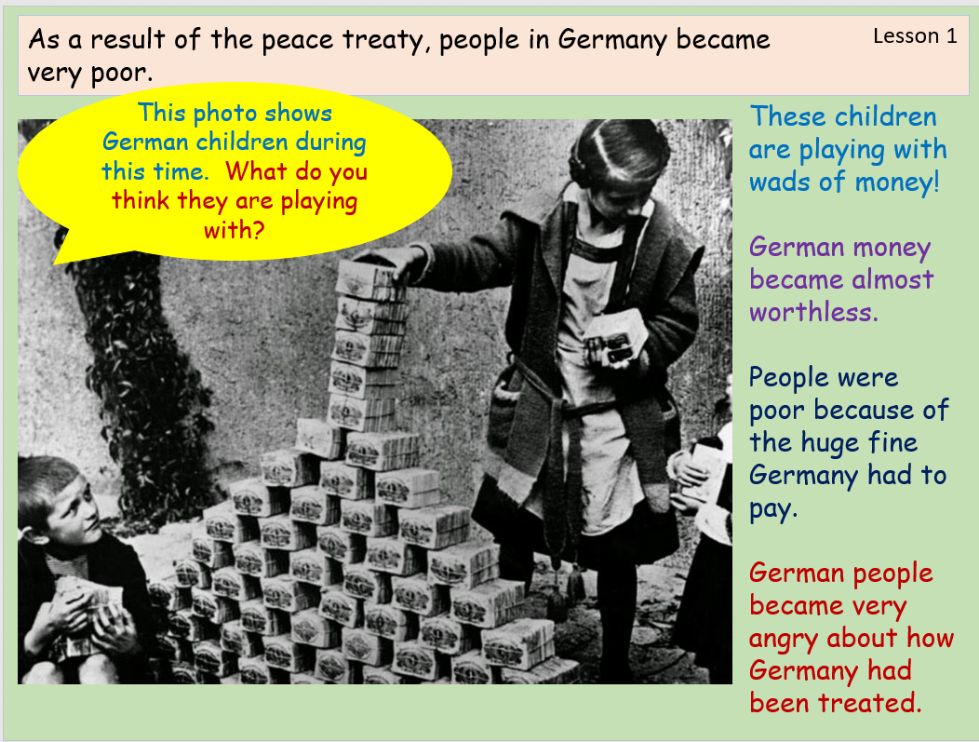
The teacher will therefore model how to answer these questions (either alone or with another adult/child) by using the correct terminology and vocabulary. This not only supports the lower skilled speakers but also enables children to be exposed to a wider range of vocabulary.
The teachers ensure they follow our skills progression so they can track the children's progress in speaking and listening.
Listening skills progression

Following instructions progression

Asking and answering questions progression

Drama and performance progression
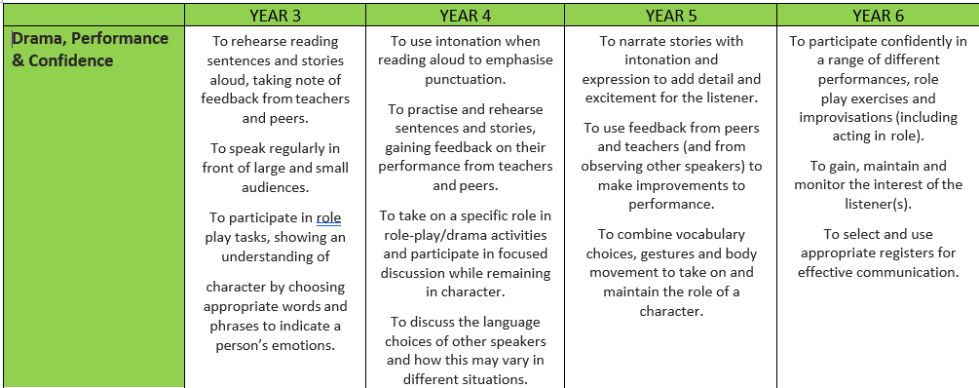
Vocabulary building and standard English progression
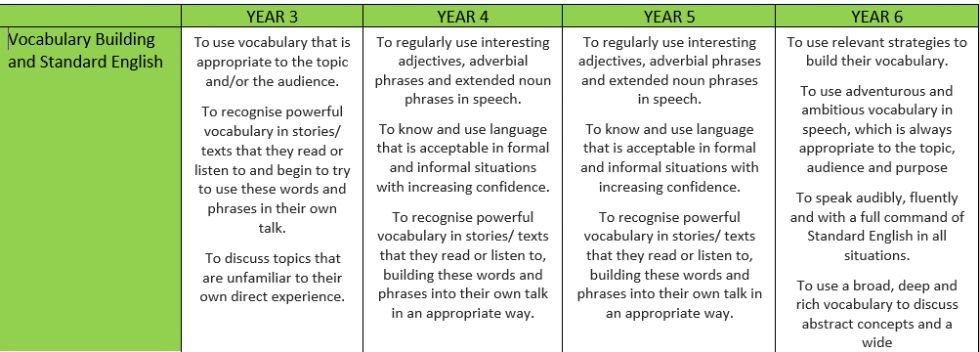
Speaking for a range of purposes progression
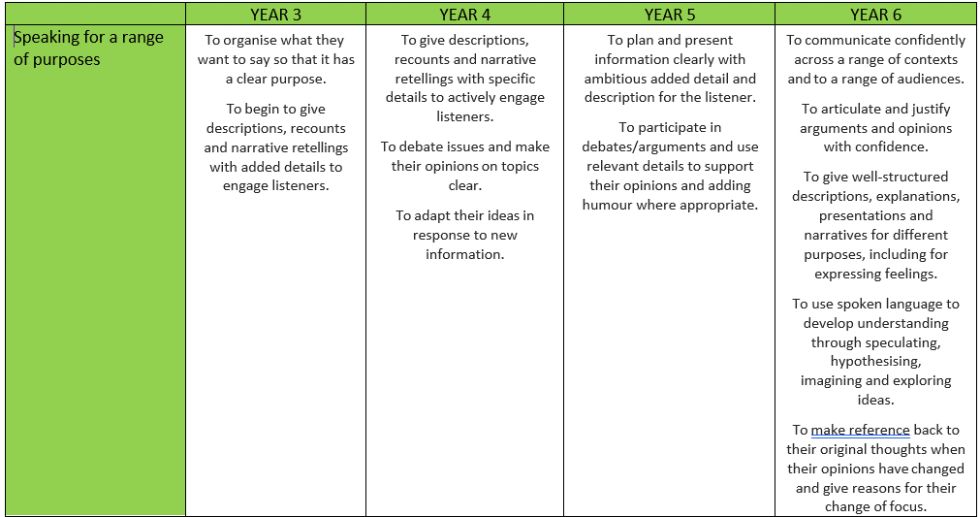
Participating in discussions progression
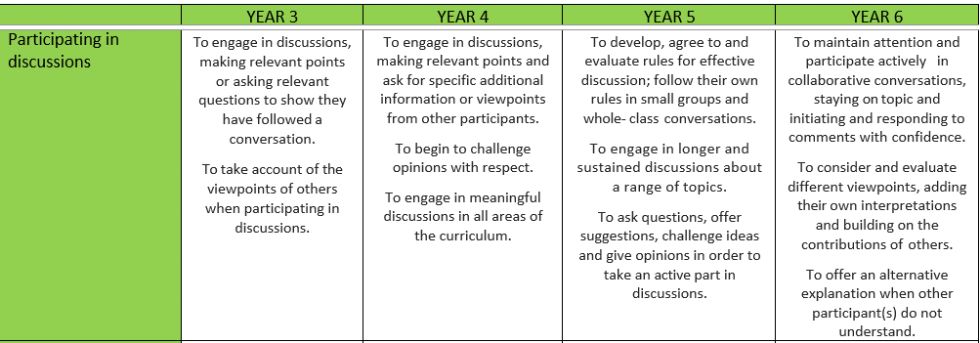
Physical aspect of language progression

Linguistic aspect of language progression

Cognitive aspect of language progression

Social and emotional aspect of language

Bi-annual Class Talks
Bi-annual class talks, independently prepared and presented to peers. The children give a short 5-7 minute presentation to their class, are marked out of 20 and given constructive feedback. The presentations range from children talking about personal interests, to sharing information that they have gathered linked to their year group topic. Here is an example of the mark sheet the children receive.
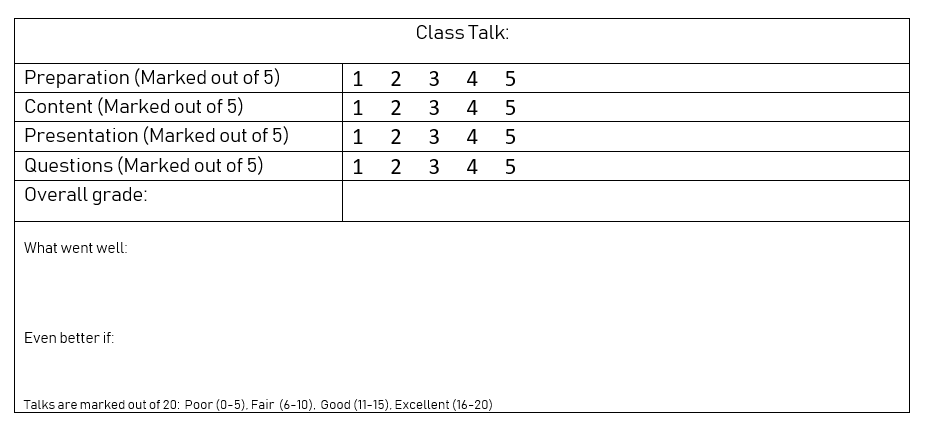
Below is an example of a Year 6 child's presentation linked to their Victorian topic.
Talk Homework
Each week, the whole school is set a 'talk homework.' This gives the children an opportunity to talk at home with their siblings and family about a topic which is linked to our theme of the week. Below are some examples.
|
Talk Homework |
|
What can we each do to look after the environment? |
|
How do you establish new friendships with people you don’t know yet? What would life be like without friends and friendly people? |
|
In school, what different things could you do to make sure you are showing respect to others? |
Class Debates
The children have the opportunity during topic lessons or PSHE to discuss different key issues. They are taught how to listen and respect others' points of view, as well as learning how to put their view across in a constructive, polite and respectful way. This is a great life skill.
Circle Time in PSHE
The children have the opportunity to talk honestly and openly with each other in a safe space.
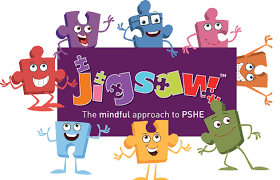
Drama Activities
The children learn how to speak like historians, scientists, mathematicians etc, which enables them to widen their vocabulary and learn how to speak in different social contexts.
School Council Meetings
The children meet with other peers from different classes and year groups, and a formal meeting is conducted. As well as this, the children have to hold meetings in their classes to gather their peer's views.

End of Term Topic Celebrations
The children have to share their knowledge with different audiences linked to their topics. We have had parents visiting our school, children from local schools, as well as other year groups/classes. This enables the learning to be 'real' and allows the children to present to an audience, which is not just the peers in their class.
School Productions
Each year group have an opportunity to perform to a larger audience. Year 3 perform the Nativity, Year 4 an Easter Production, Year 5 Harvest and Year 6 perform a show for their end of year production. The children learn many new skills during these performances, as well as those children who take on back stage roles.




